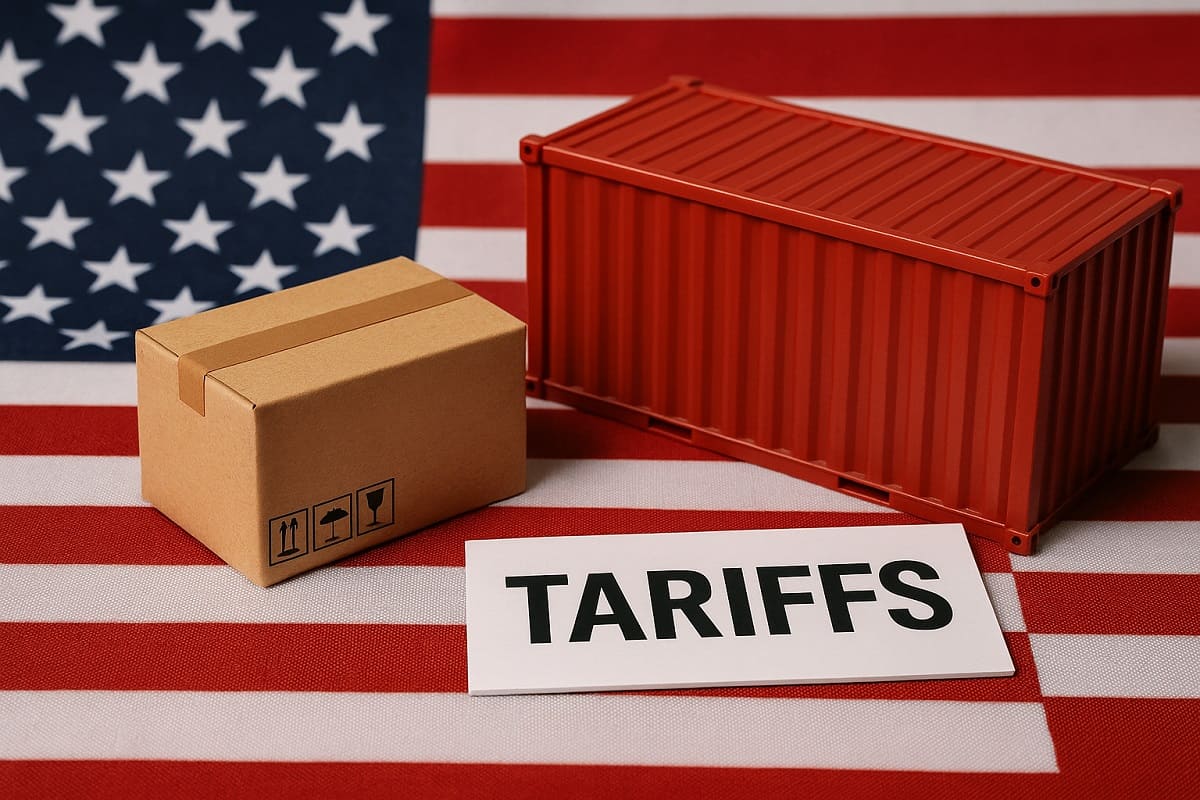
After Trump’s formal letters, the tariffs will take effect August 1. The EU seeks last-minute mediation.
It was a symbolic high noon. Former U.S. president Donald Trump chose exactly 12 p.m. Eastern time – 6 p.m. in Italy – to issue warning letters announcing an upcoming hike in tariffs. In his post on Truth Social, Trump stated that the messages would outline “a series of trade agreements between the United States and various countries.” The full list of recipients remains unclear, but Trump has already labeled any nation that supports BRICS policies as anti-American, threatening an additional 10 percent in new U.S. tariffs.
BRICS respond with unity
“Any country aligning itself with the anti-American policies of the BRICS will face an additional 10 percent tariff. There will be no exceptions,” Trump wrote on his social platform. His main trade rival, Chinese Premier Li Qiang, quickly responded by urging BRICS nations to remain united and act collectively. These 11 emerging economies, including Brazil, Russia, India, China, and South Africa, represent nearly half of the global population and 40 percent of worldwide economic output.
According to Trump’s earlier statements, this critical episode that has disrupted global markets should reach a conclusion by July 9, “either through a letter or through a deal.” But with Trump, nothing is ever truly final. Once the letters are sent, Commerce Secretary Howard Lutnick confirmed that the proposed tariffs will take effect August 1.
Last-minute EU efforts to avoid tariffs
Tensions remain high across Europe as the July 9 deadline approaches. European Commission President Ursula von der Leyen had “a good phone conversation” with Trump yesterday, trying to find a last-minute resolution. But for Olof Gill, the European Commission’s trade spokesperson, there was nothing to comment on. “We have not received any letters, nor will we comment on statements from the U.S. administration. Political and technical discussions between the EU and the U.S. are ongoing. That is all I can say for now,” he told reporters.
U.S. tariffs spark recession fears
In a time of growing uncertainty, global economic outlooks have shifted dramatically. “The major surprise has been the significant shift in U.S. trade policy,” said JP Morgan chief economist Bruce Kasman. “We expect this shock to cause a broad-based slowdown in global growth, with inflationary pressures rotating toward the United States.” The bank still places the probability of a recession at 40 percent, citing weakening growth and declining global business sentiment.
As for Europe, JP Morgan notes that “while trade policy uncertainty will likely continue to weigh on the economy, GDP growth is expected to slow only modestly in the near term, before picking up again at the end of 2025, supported by rate cuts and fiscal easing.” Still, broader challenges remain. “Geopolitical tensions and competitiveness issues are mounting, and low productivity growth remains a key structural hurdle for the region,” concludes the bank’s midyear analysis.